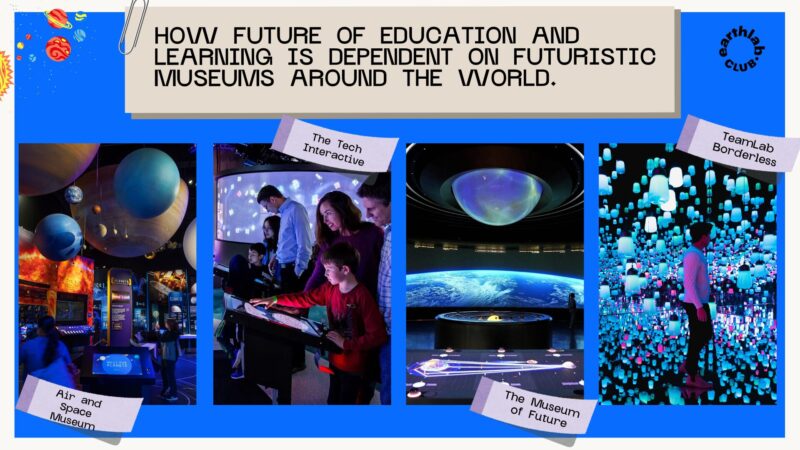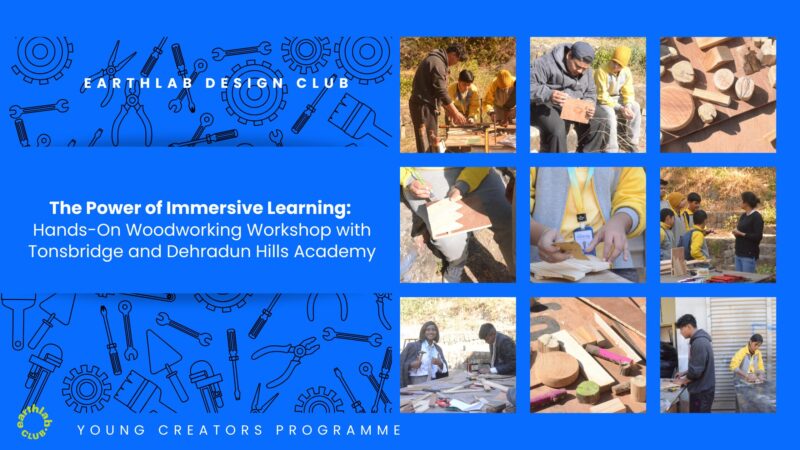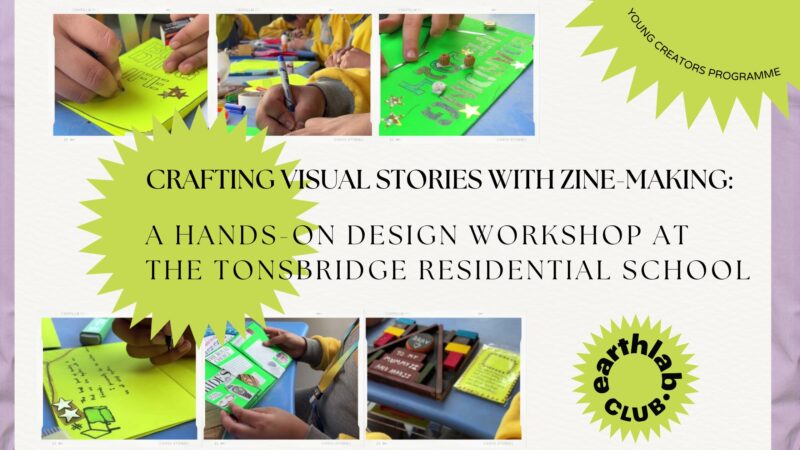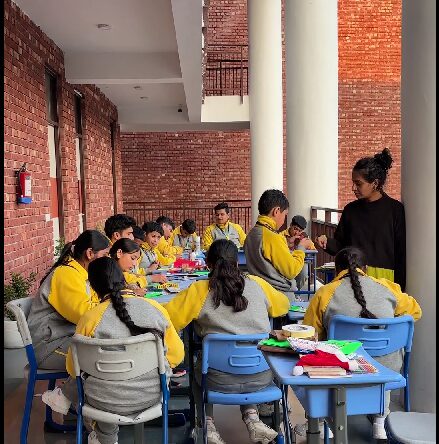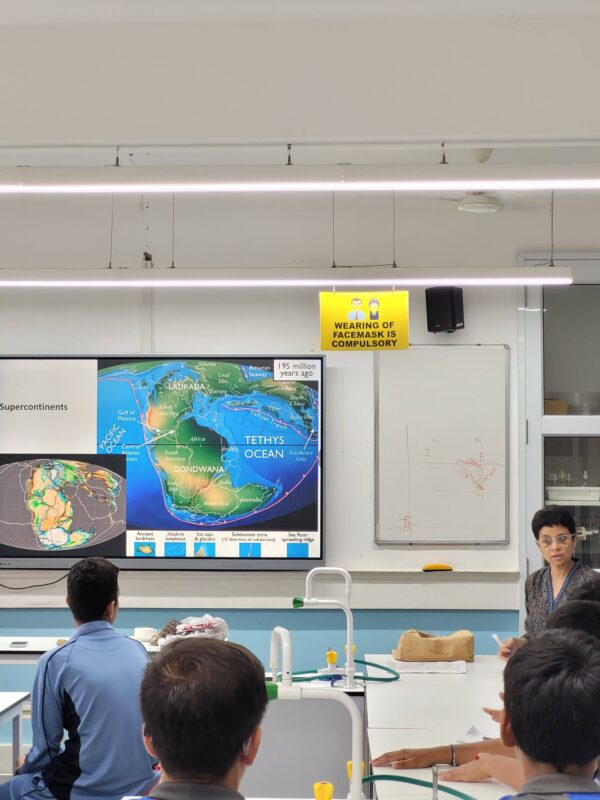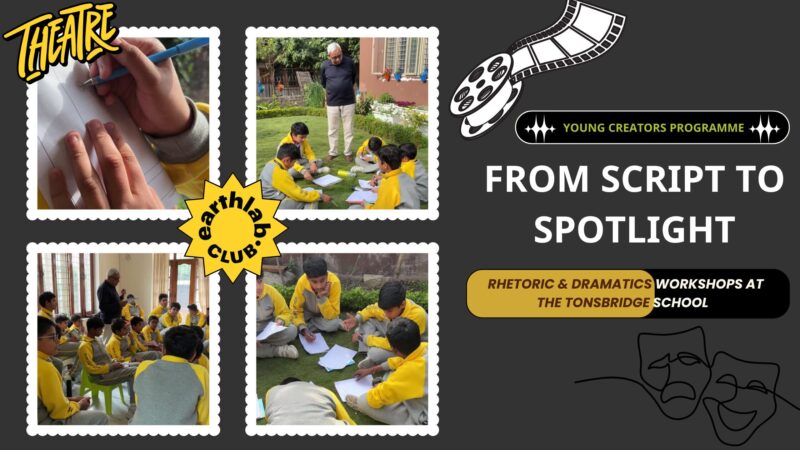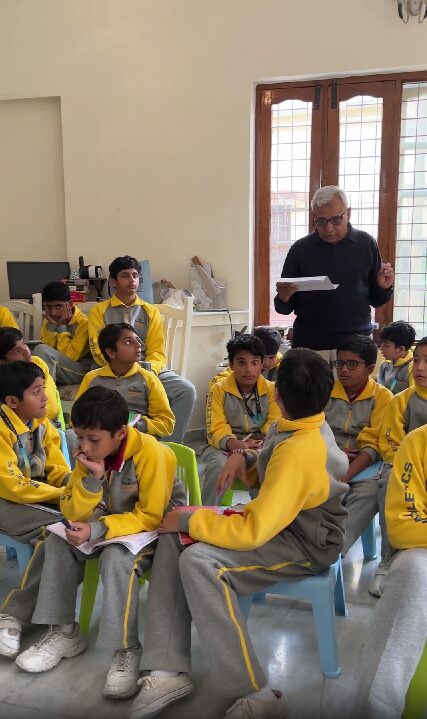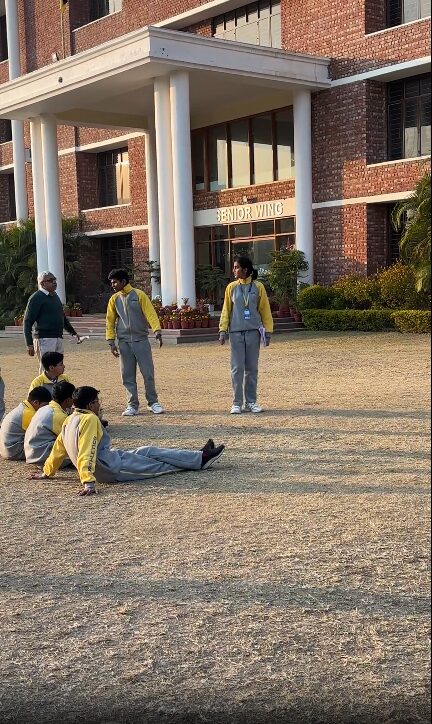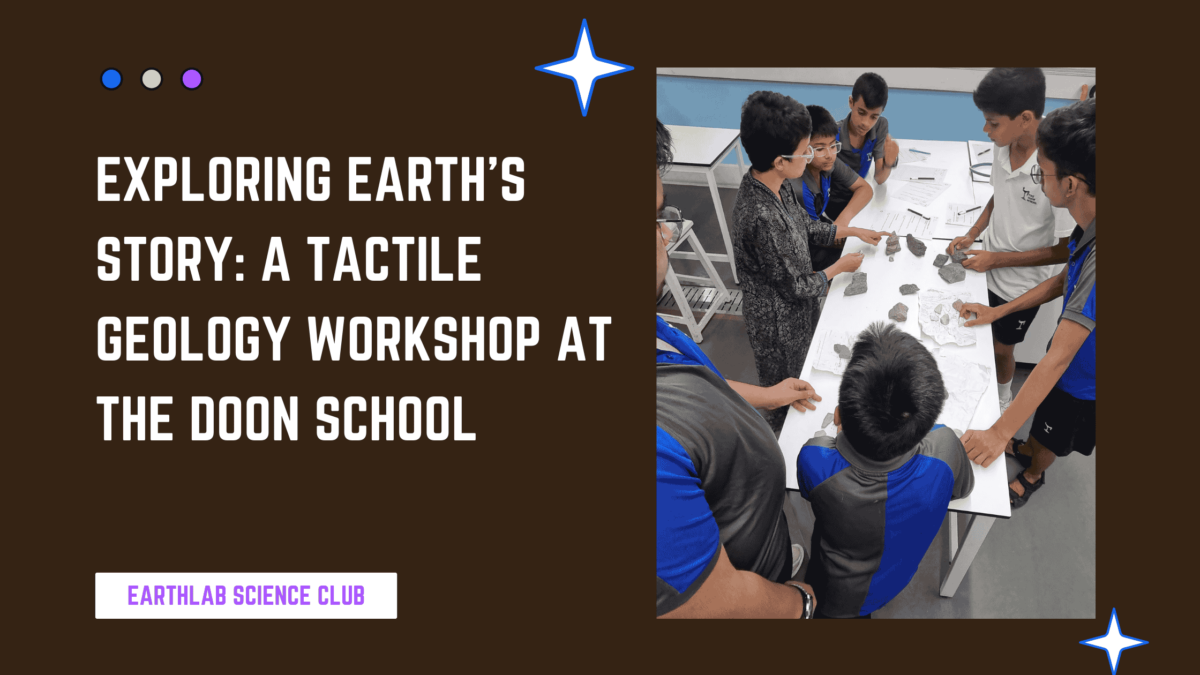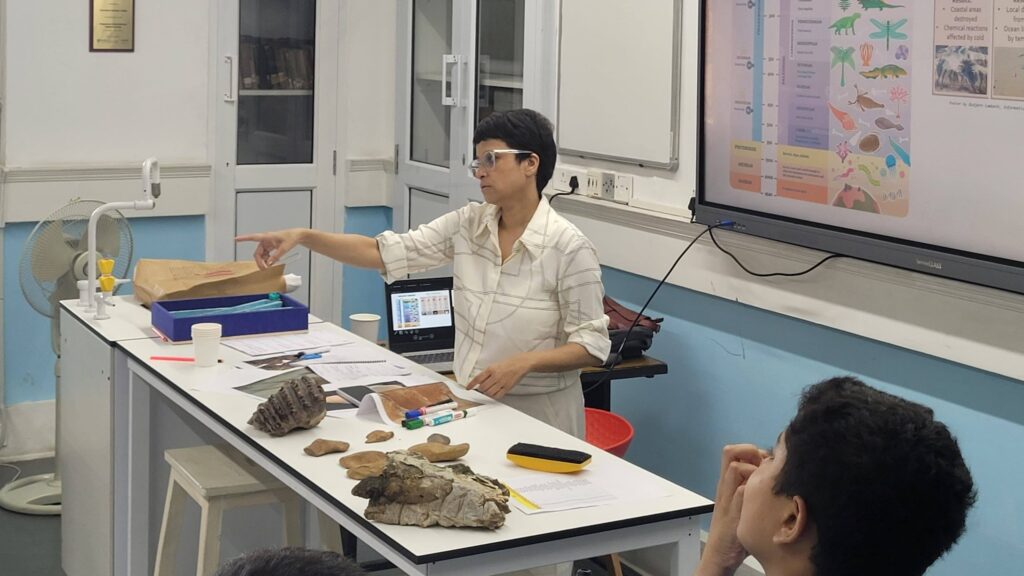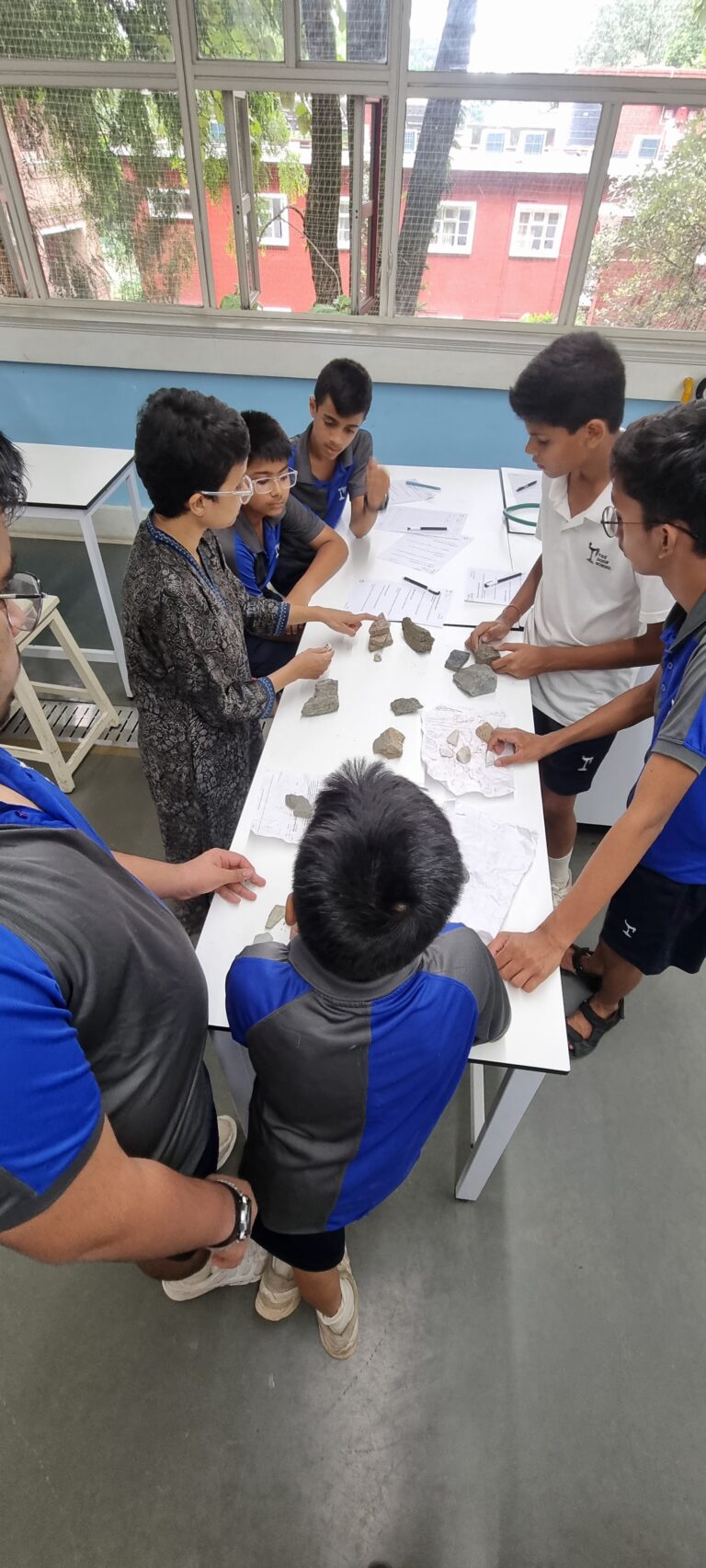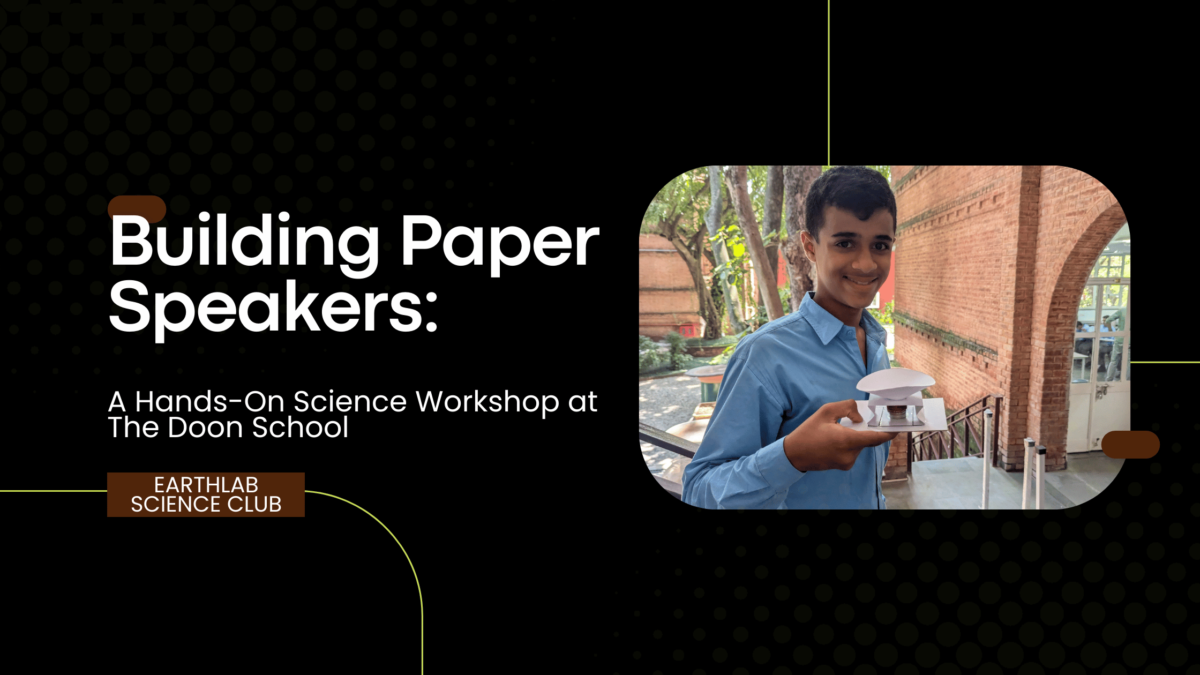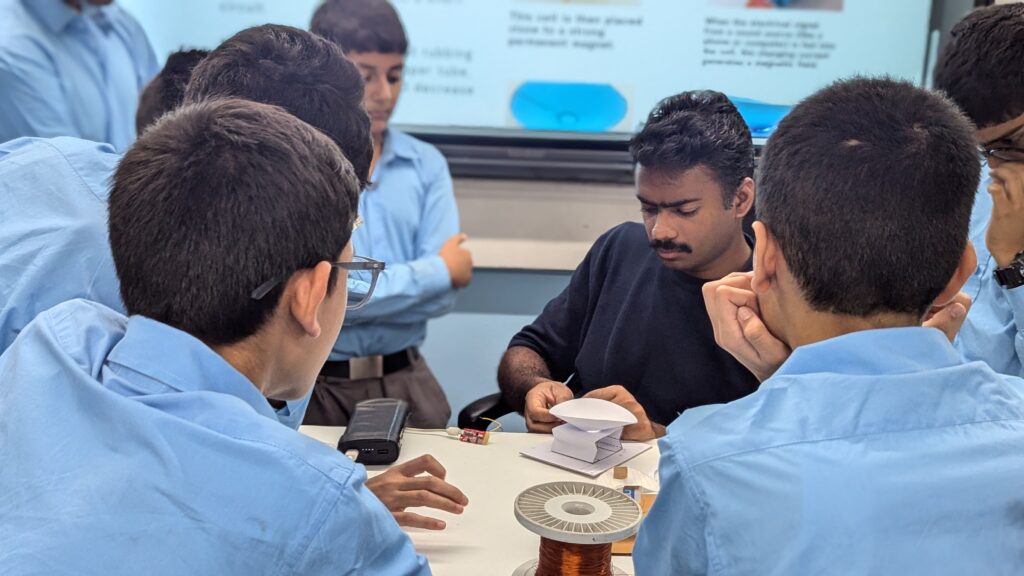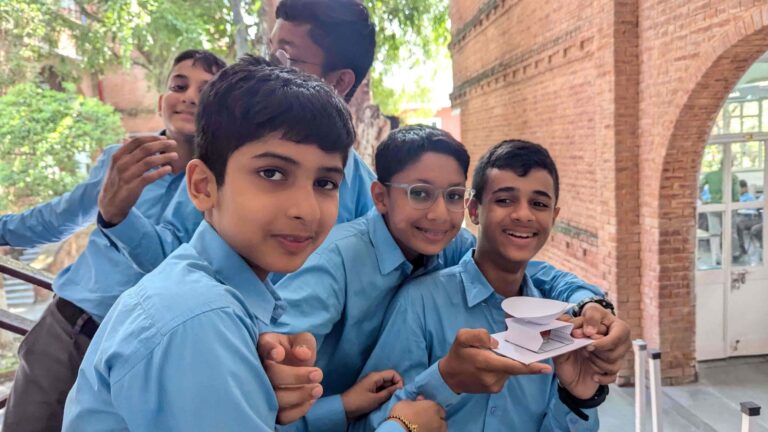We today live in an age which was once imagined only in science fiction, an era of rapid innovation, smart devices, and immersive technology. As tech becomes deeply woven into our daily lives, especially for young children who are exposed to screens as early as age two, it’s essential that learning keeps pace. The future of education isn’t just about using digital tools, it’s about transforming how we think, explore, and engage. Over the past few years, we’ve seen a rapid shift towards people opting for hands-on, experiential learning and while traditional classrooms are still very dominant in our education systems, it is observed that interactive and immersive spaces are proving to be more impactful for young minds. These environments spark curiosity, encourage critical thinking, and make complex STEM concepts come alive.
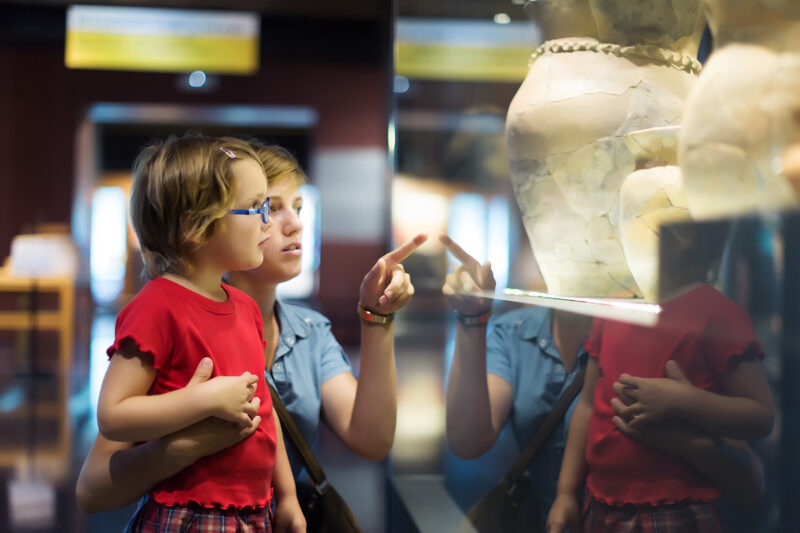
That’s why Earthlab Club recommends exploring futuristic museums that merge innovation with education. These museums offer transformative experiences through their exhibits in robotics, space science, AI, sustainable design that help kids understand better and aids in nurturing and shaping their own ideas for the future. Come along with us as we take you on a journey through some of the museums with the most innovative and high-end technology that hold the key to the future of education.
Museum of Future (dubai)
With its focus on science, tech, innovation, space and sustainability the museum demonstrates how storytelling, sensory learning, and future tech can inspire children to be creators, not just consumers.
- The museum takes visitors on a journey to the year 2071 across 7 immersive floors.
- Features include OSS Hope (space exploration), Al Waha (provides therapies), Vault of Life (biodiversity), and Tomorrow, Today (AI and sustainability).
- Future Heroes floor is a creative wonderland for kids under 10 where they can build, imagine, design and play with tech in different areas like Rocket Tower, Build Lab, Imagine Lab, Balance Balloon, and Design Lab.
- The museum combines elements of exhibition, immersive theatre, and themed attraction, inviting visitors to look beyond the present and look at what the future of education would look like.
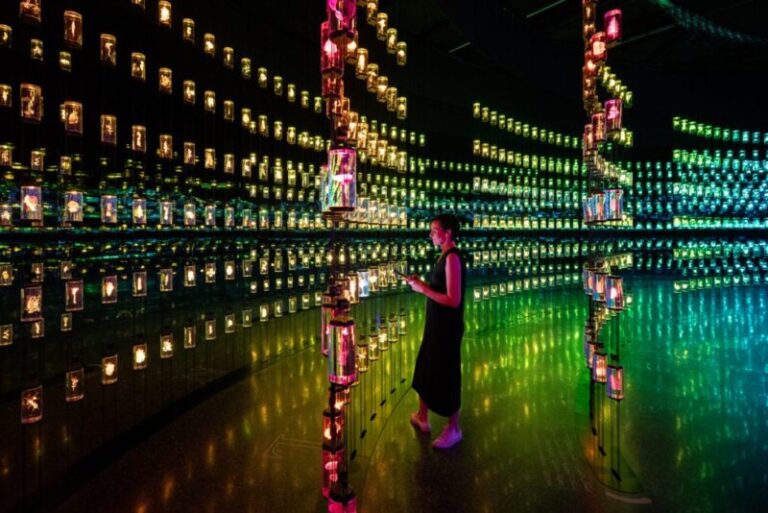
tech interactive museum (san jose, california)
With its focus on STEAM, design thinking, and robotics the museum builds essential future skills through applied learning, collaboration, and creativity.
- Located in the heart of Silicon Valley, this museum is packed with interactive exhibits:
- Program social robots
- Explore sustainable tech
- Dive into biotech and AR dissection
- Offers real-world learning experiences like The Tech Challenge for grades 4–12 and Innovator Programs for young creators that supports the notions of advancing the future of education.
- A leading example of how future-forward institutions can serve as powerful alternate learning spaces that contribute meaningfully to the future of education.
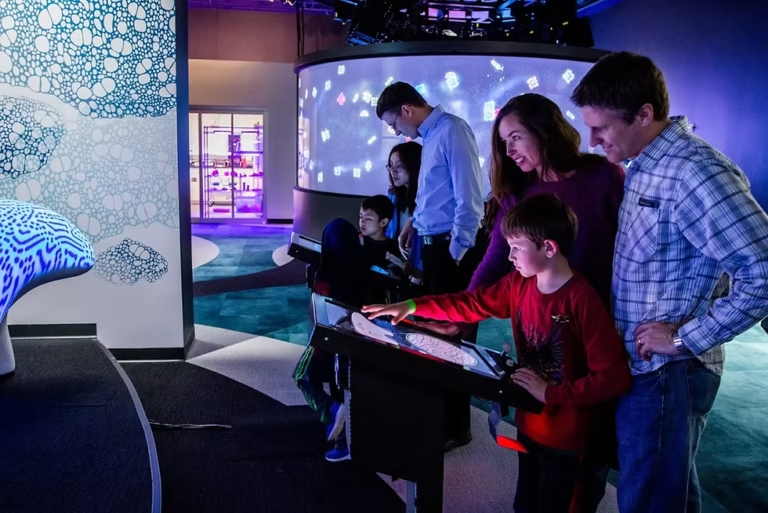
Smithsonian National Air and Space Museum (Washington, D.C.)
With its focus on aviation, space exploration and physics the museum merges history with science and curiosity, encouraging kids to dream big.
- The museum houses world-famous artifacts like the Apollo 11 Command Module and Wright Flyer.
- The museum also serves as a major research center for the history and science of aviation, spaceflight, planetary science, terrestrial geology, and geophysics.
- There are thematic exhibits like Destination Moon and America by Air bringing STEM history to life.
- They also offer stargazing nights like the Only1DC experience with high-powered telescopes.
- Museums’ unparalleled collection and dedication to scientific education shows how devoted it is to the future of education, as it offers a chance to explore innovation, engineering, and human curiosity in action.
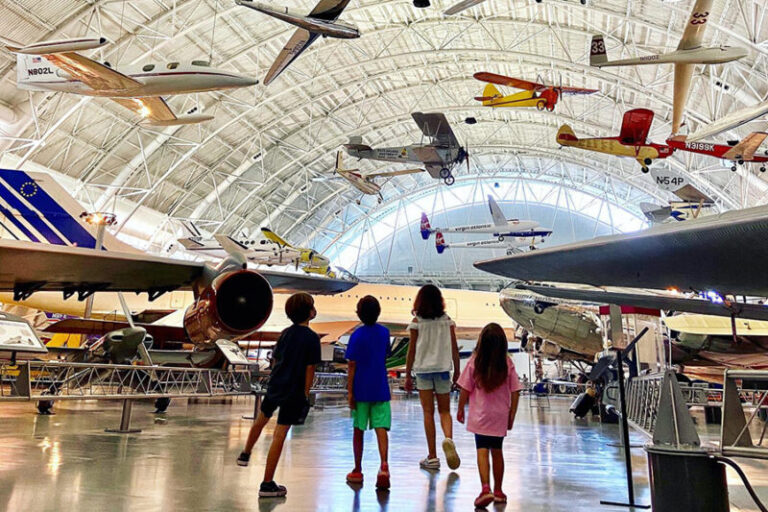
TeamLab Borderless (Tokyo & Jeddah)
With its focus on digital art, creativity, and environment the museum shows that the future of education includes art, empathy, and tech-driven experiences.
- TeamLab projects aim to show the relationship between nature and artificial creations, immersing the recipient’s body in an interactive world.
- The museum has interactive, immersive installations that blend technology, motion, light, and nature.
- The exhibits teach children creativity, mindfulness, and environmental consciousness through sensory engagement.
- The museum creates digital artwork which is based on the concept of borderless, and integrates advanced technologies which plays a prominent role in the future of education.

Science Museum Group (UK)
With its focus on science education and digital innovation this museum bridges formal education with museum-led experimentation and discovery, a significant step towards a better future of education.
- Comprises institutions like the London Science Museum and Manchester’s Science & Industry Museum.
- Offers digital tools, curriculum-linked activities, and teacher resources.
Features labs where kids experiment like real scientists.

Google Arts & Culture (Global, Virtual)
With its focus on making global history, art, and science accessible to everyone, Google Arts & Culture reflects the very essence of the future of education, one that is inclusive, digital, and boundaryless. It brings world-class museum learning to anyone, anywhere, empowering learners to explore and connect with knowledge beyond the classroom.
- A virtual platform connecting users to 2,000+ museums around the world.
- The museum Offers 360° tours, artifact close-ups, and educational tools for free.
- It utilizes high-resolution image technology that enables the viewer to tour partner organization collections and galleries and explore the artworks’ physical and contextual information.
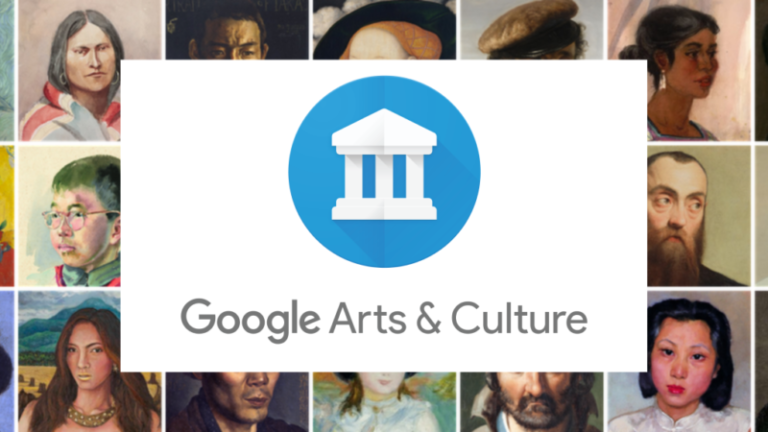
future of education with museums
Futuristic museums are not just about showing off tech, rather they’re about changing the way we learn. They invite children (and adults) to touch, feel, question, build, and play their way through big ideas. They not only showcase the history of humankind but also offer a glimpse into what the future of education, learning, technology, and innovation could look like.
These institutions support and encourage experiential learning, real-world problem solving, cross-disciplinary exploration and curiosity-driven thinking. In a world where education must evolve alongside innovation, these museums serve as powerful alternate learning spaces. Learning today can no longer rely solely on traditional classrooms. The rise in demand for experiential and immersive environments reflects a shift toward meaningful, real-world engagement. Museums like these are more than exhibitions, they are spaces that support the future of education, helping to shape curious, capable, and future-ready learners.
Want your child to explore creativity through tech, storytelling, science, or sound?
Join EARTHLAB.CUB in exploring more such experiences! Reach out to learn how we’re bringing the future of education to your neighborhood.
📩 Email: info@earthlab.club
📲 WhatsApp: 9997014663

